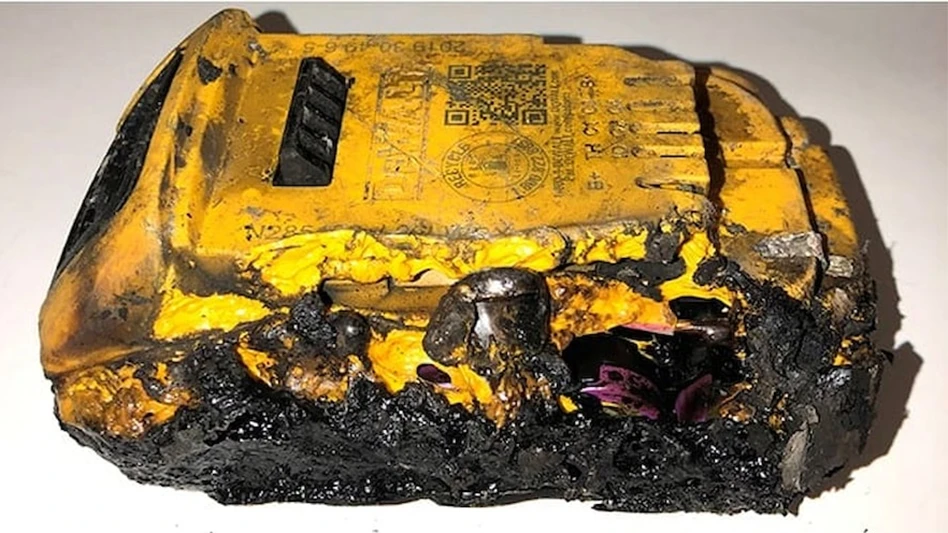
Photo courtesy of ecoMaine
Starting earlier this year, the Oregon State Fire Marshal’s Office reportedly has started tracking all structural fires, including at waste and recycling facilities, determined to have been caused by stored or discarded lithium-ion batteries.
A report from Oregon Public Broadcasting says the state has been collecting data, hoping to understand how often lithium batteries are causing fires, what’s causing them to explode and how that can be prevented.
Much of the late-October report looks specifically at the trend of fires at waste and recycling facilities, where lithium-ion batteries are unwanted yet nonetheless have a regular presence.
According to the Oregon Public Broadcasting report, Alison Green of the fire marshal’s office says it’s still early to draw conclusions from the data gathered so far.
Deschutes County (Oregon) Solid Waste Director Tim Brownell, tells the news outlet gathering such data may help the public learn to understand the severity of the lithium-ion battery combustion problem.
Brownell says his county’s landfill in central Oregon has experienced more than lithium-ion battery-related fires in just the past three months. “Staff went from seeing battery fires once a month to multiple times a week,” Joni Land of Oregon Public Broadcasting says.
Lithium-ion batteries have been cited nationwide as the potential cause of fires at scrap yards, material recovery facilities (MRFs), landfills, transfer stations and even on a scrap metal-carrying barge.
The problem has led to increased attention and spending on fire suppression systems at such facilities as well as to public information campaigns designed to urge people not to discard lithium-ion batteries into standard trash and recycling streams.
Brownell says the problem is omnipresent in his waste district. On multiple occasions, he tells Oregon Public Radio, garbage trucks have arrived at the Deschutes County landfill with a fire smoldering in its rear collection compartment.
“You might get flames that are three or four feet up in the air," he says of the landfill. "Once you get flames like that, you start to get concerned about it starting to catch the adjacent materials around it.”
While a scrap barge on the East Coast brought attention to fires in the metals stream last year, scrap recyclers on the Pacific Coast are by no means immune.
The report cites auto shredder operator Pacific Coast Shredding in Vancouver, Washington, as having experienced multiple lithium-ion battery fires in recent years. Further south on the coast, Sims Metal also experienced a fire last year at its Redwood City, California, shredding plant.
The scrutiny in Oregon comes amid concerns and proposed remedies nationwide focused on how to tame a problem that seems to have gained momentum throughout the 21st century.
Latest from Waste Today
- Chiquita Canyon Landfill closes active waste disposal operations
- Highland Sanitation awarded solid waste and recycling contract in Wanamingo, Minnesota
- First NYC commercial waste zone is operational
- Portage, Michigan, launches food scraps recycling pilot program
- Colorado proposes new rules to curb landfill methane emissions
- Over 300 DSNY sanitation workers clean up confetti on New Year’s Eve
- Thinking about selling your waste business?
- Industry civil suit heading to trial in 2025





